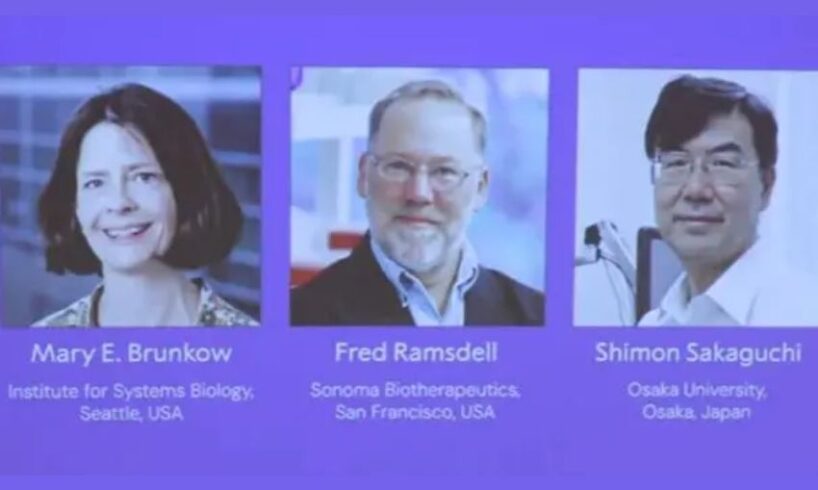
- Mary Brunkow, Fred Ramsdell, and Shimon Sakaguchi Win 2025 Nobel in Medicine
Stockholm, October 6, 2025 — The 2025 Nobel Prize in Physiology or Medicine has been awarded to Mary E. Brunkow, Fred Ramsdell, and Shimon Sakaguchi. The trio received the honor for revealing how the human body prevents its immune system from attacking itself.
Announcing the award, the Nobel Committee said the winners were chosen “for their discoveries of mechanisms that stop the immune system from turning against the body’s own cells.” Their work has transformed the world’s understanding of autoimmune diseases and how the body maintains immune balance.
A Breakthrough in Understanding Immunity
Every day, the immune system defends the body from thousands of invading microbes. Some of these microbes, however, closely resemble human cells. For decades, scientists struggled to explain how the immune system identifies which cells to attack and which to protect.
The Nobel laureates finally provided that answer. They discovered the crucial role of T cells, special immune cells that act like security guards inside the body. These cells control immune reactions and prevent harmful attacks on the body’s own tissues.
A Discovery With Global Impact
According to Olle Kämpe, Chairman of the Nobel Committee,
“Their discoveries have helped us understand why most people do not develop severe autoimmune diseases.”
Their research has opened the door to new treatments for illnesses like type 1 diabetes, multiple sclerosis, and rheumatoid arthritis. Moreover, their findings have influenced modern approaches to cancer therapy and organ transplantation, where controlling the immune system is vital.
Continuing the Legacy of Scientific Excellence
The Medicine Prize is the first announcement in the 2025 Nobel series, which will be followed by awards in Physics, Chemistry, Literature, Peace, and Economics. Each Nobel Prize includes a gold medal, a diploma, and a cash prize of 11 million Swedish kronor (around USD 1 million).
As the Nobel season begins, the discovery by Brunkow, Ramsdell, and Sakaguchi stands as a remarkable reminder of science’s power to protect human life.
Also read: Cancer in India: Myths, Facts, and Prevention
